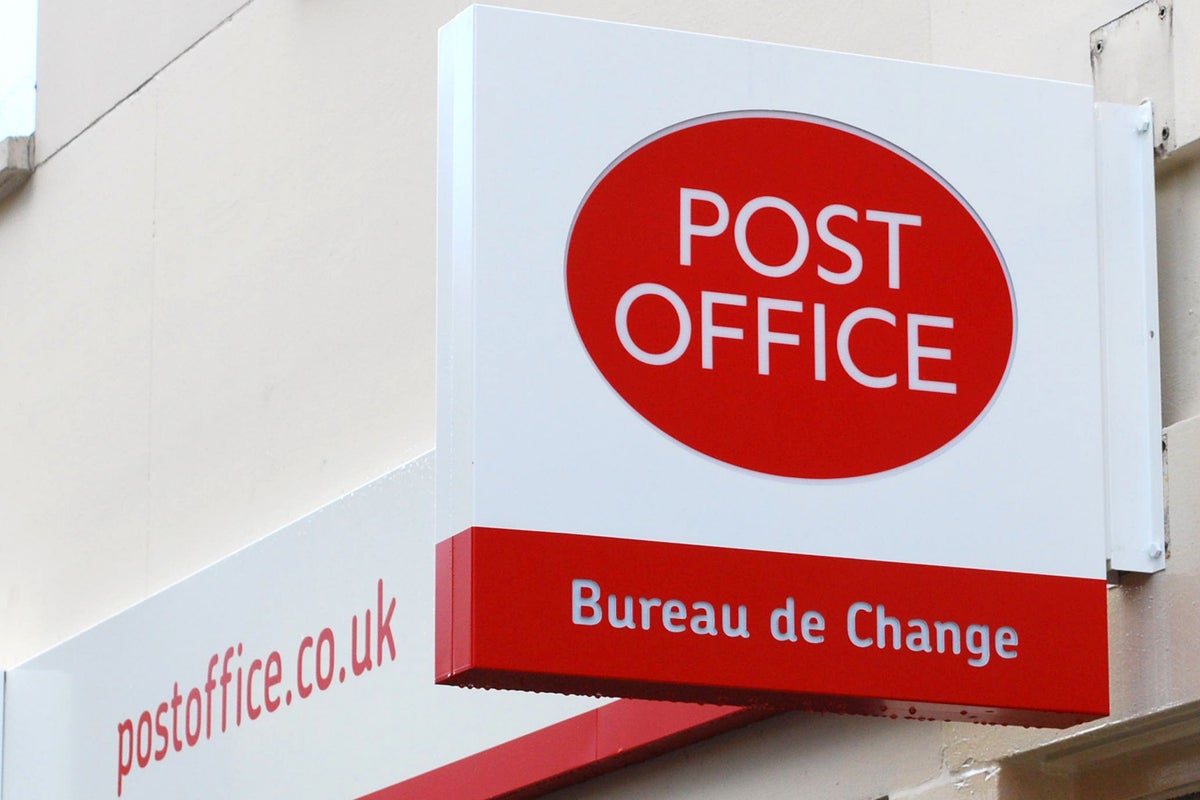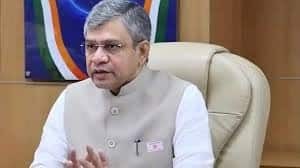Business
Post Office proposes to offer digital ID and pharmacy prescriptions in reforms

The Post Office is proposing that its stores are used for more services such as pharmacy prescription collection, digital ID and business advice, as part of efforts to safeguard its future on the high street.
The state-owned postal, banking and retail business has laid out a series of potential policy reforms to the Government to help grow its revenue streams.
However, it has also called on the Government to look at tailored tax relief for Post Offices.
The Government launched a green paper in July looking at how the organisation should be run.
In the original documents, the Government indicated it could scrap the Post Office’s 11,500-branch requirement as part of an ongoing review process.
In its submission to a consultation, which will close next week, the Post Office said it was important to “maintain nationwide coverage” and its 11,500-strong branch requirement.
Nevertheless, the company said in its reform proposal that it was seeking a “flexible policy framework” so that its network of branches can “evolve” as consumer demands change.
It is understood that this includes potential changes to the required make-up of its branch portfolio, amid the growth of Post Office-run banking hubs.
On Monday, the business also called for the Government to allow it to extend its enhanced banking and parcel services with new services, such as advice for small business.
It also called for the Government to “make post offices the trusted place for essential government services, like digital ID or pharmacy prescription collection”.
They suggested ministers “explore tailored business rates relief”, to potentially give the business discounts on its property tax payments to reflect their contribution to communities.
Meanwhile the Post Office is pushing forward with a major transformation plan.
The business said earlier this year that it is considering offloading 115 directly owned branches within its network, which could see them transferred to retail partners or postmasters, or potentially closed.
The overhaul comes as the Post Office looks to move on from the Horizon IT scandal in which hundreds of subpostmasters were wrongfully convicted.
Neil Brocklehurst, Post Office chief executive, said: “Post Office has been part of the everyday fabric of British life for almost 400 years. But we cannot afford to stand still.
“Digital technologies have transformed how we shop, transact and communicate.
“And like any modern retailer, we must evolve to meet customer demand and sell the products and services which will drive revenue for the postmasters and partners who operate our branch network.
“I look forward to working with our postmasters, partners, customers and government as we continue to transform this vital organisation, and I’m confident we will see a strong and vibrant Post Office network across the UK for decades to come.”
Business
Video: How ICE Is Pushing Tech Companies to Identify Protesters

new video loaded: How ICE Is Pushing Tech Companies to Identify Protesters
By Sheera Frenkel, Christina Thornell, Valentina Caval, Thomas Vollkommer, Jon Hazell and June Kim
February 14, 2026
Business
52 reforms in 52 weeks: Ashwini Vaishnaw outlines massive railway overhaul for 2026

Indian Railways has reached a global milestone in freight operations, securing its position as a premier international logistics hub. Union Minister for Railways, Ashwini Vaishnaw, announced today that the national carrier has achieved an unprecedented scale in its logistics division. Highlighting this achievement, the Minister stated, “Indian Railways has become the second-largest cargo carrier in the world.”
Building on this momentum, the Ministry has prepared a rigorous roadmap for the upcoming year aimed at systemic transformation. The government plans to roll out a series of weekly initiatives to modernise every facet of rail travel and transport. Vaishnaw explained the structured timeline, saying, “For 2026, Railways has resolved to implement 52 reforms in 52 weeks.”
The initial phase of this plan will prioritise the passenger experience, with a focus on improving the quality of onboard facilities. The Minister identified the primary starting point for this year-long agenda, noting, “The first reform is better onboard services in Railways.”
In addition to passenger amenities, the government is placing strong emphasis on the “Gati Shakti” initiative to streamline the nationwide movement of goods. This strategic focus is designed to strengthen the country’s supply chain. Vaishnaw confirmed the freight sector’s priority, adding, “The second concerns ‘Gati Shakti Cargo.’”
A cornerstone of the 2026 agenda is a comprehensive overhaul of sanitation and hygiene standards. The Ministry has developed a new blueprint to ensure that the rail network’s cleanliness meets global benchmarks. Detailing the specifics of the first major initiative, the Minister remarked, “Reform number one for 2026 will ensure proper end-to-end cleaning of the Railways… The concept of a clean rail station has been established.”
This cleanliness drive is not a short-term measure but a multi-year commitment to cover the entire Indian Railways fleet. The implementation will be phased to ensure thoroughness and consistency. Vaishnaw clarified the timeline, stating, “Over three years, this reform will be implemented across all trains.”
To ensure the success of these reforms, the Ministry is introducing a robust accountability framework. These measures will include performance-based contracts and the integration of modern digital tools to monitor progress in real time. Emphasising the shift towards professional and technology-driven management, the Minister concluded, “There will be clearly defined service-level agreements… There will be extensive use of technology.”
Business
BrewDog owners say craft beer company could be sold off

Craft beer brand BrewDog could be sold off after the company started the process to find new investors.
The Scottish beer brand recently announced plans to close all of its distilling brands, meaning it would no longer produce any of its spirits, including Duo Rum, Abstrakt Vodka, and Lonewolf Gin, at its distillery in Ellon, Aberdeenshire.
The company, which was founded in 2007, said it made the decision to focus on its beer brands, including the highly-popular Punk IPA, Elvis Juice, and Hazy Jane.
Now, in a statement, a spokesperson for BrewDog said the company had appointed Alix Partners to “support a structured and competitive process to evaluate the next phase of investment for the business.”
The statement said: “As with many businesses operating in a challenging economic climate and facing sustained macro headwinds, we regularly review our options with a focus on the long-term strength and sustainability of the company.
“Following a year of decisive action in 2025, which saw a focus on costs and operating efficiencies, we have appointed AlixPartners to support a structured and competitive process to evaluate the next phase of investment for the business. This is a deliberate and disciplined step with a focus on strengthening the long-term future of the BrewDog brand and its operations.”
Although no decisions have been made, a sale is under consideration.
In a statment BrewDog added: “BrewDog remains a global pioneer in craft beer: a world-class consumer brand, the No.1 independent brewer in the UK, and with a highly engaged global community. We believe that this combination will attract substantial interest, though no final decisions have been made.”
According to reports by Sky News, AlixPartners had begun sounding out prospective buyers in the last few days.
The company, which has 72 bars worldwide and four breweries in Scotland, the US, Australia, and Germany, said its breweries, bars, and venues will continue to operate as normal. It employs 1400 people across the organisation.
BrewDog’s founders James Watt and Martin Dickie are the company’s major shareholders alongside private equity company TSG, which invested £213 million in 2017, making it a 21 per cent shareholder.
In 2024, the beer brand grossed £357 million in sales, and it is a major independent brewer with 4 per cent market share in the UK grocery market.
-

 Entertainment1 week ago
Entertainment1 week agoHow a factory error in China created a viral “crying horse” Lunar New Year trend
-

 Business5 days ago
Business5 days agoAye Finance IPO Day 2: GMP Remains Zero; Apply Or Not? Check Price, GMP, Financials, Recommendations
-

 Tech1 week ago
Tech1 week agoNew York Is the Latest State to Consider a Data Center Pause
-

 Fashion4 days ago
Fashion4 days agoComment: Tariffs, capacity and timing reshape sourcing decisions
-

 Tech1 week ago
Tech1 week agoNordProtect Makes ID Theft Protection a Little Easier—if You Trust That It Works
-

 Tech1 week ago
Tech1 week agoPrivate LTE/5G networks reached 6,500 deployments in 2025 | Computer Weekly
-

 Business1 week ago
Business1 week agoStock market today: Here are the top gainers and losers on NSE, BSE on February 6 – check list – The Times of India
-

 Business1 week ago
Business1 week agoMandelson’s lobbying firm cuts all ties with disgraced peer amid Epstein fallout






